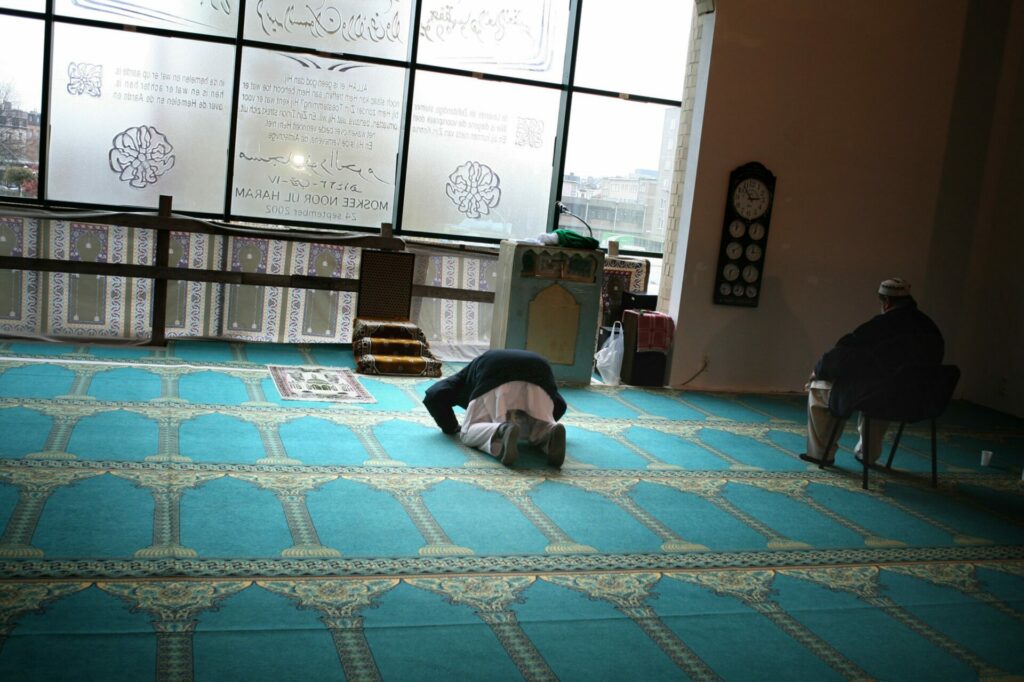Some 20 Brussels cultural institutions have launched a "Ramadan-friendly" label, which allows spectators to break their fast during the show and gives a warning if the performance includes violence, nudity or music. Flemish Minister-President and Cultural Minister Jan Jambon, however, has reservations.
A series of culture houses in the Brussels-Capital Region – including the well-known Kaaitheater – announced that they want to make performance evenings during Ramadan more accessible for Muslims who are fasting.
In practice, this means that free water is offered, the audience is allowed to leave the room during the performance to eat, those participating in Ramadan can break the fast in a separate room somewhere in peace just before the performance, and there are content warnings. Several institutions across Europe have been experimenting with such a 'Ramadan-friendly' label for some time.
Jambon, who is a member of the Flemish rightwing N-VA party, has reservations about the label, particularly about the content warnings for nudity, violence or music, Het Laatste Nieuws reports.
Removing barriers
"Such religious interference in cultural-artistic practice seems very problematic to me," he told the culture houses at the beginning of this week. "It is about warnings to the public, but can also lead to a form of self-censorship among culture creators while culture should stimulate, challenge and surprise. In my opinion, it also testifies to a rather paternalistic view of the cultural participant."
He said that he recognised the good intentions behind the label, but fears that the measure could cause even more prejudice and mutual distrust.

Mosque Noor-ul-Haran, in Antwerp. Credit: Belga / Jorge Dirkx
However, the Kaaitheater, which is the initiator behind the label, stressed that the sole purpose of the warnings is to prevent people from having "unpleasant experiences." General and artistic coordinator Barbara Van Lindt also emphasised that it is still in a test phase and that any feedback is welcome.
"The motto from which the Kaaitheater works is 'How to be many?' We want to work towards more accessibility of our offer and remove barriers," she said on Flemish radio. "Therefore, public workers have asked people from the cultural world and the public: can we remove barriers for people who actively participate in Ramadan? And that has resulted in a series of possible options, which are now listed online."
Related News
- Antwerp instructs local theatre to replace 'woke' photos with classical paintings
- 'It criminalises Western society': De Wever launches scathing attack on 'wokeism'
- Antwerp venue cancels 'Queer Iftar' as safety cannot be guaranteed
For Van Lindt, the warnings for violence and nudity, for example, should therefore not be seen as actions specifically linked to Ramadan, as several institutions already use these warnings for content that shows suicide, violence and stroboscopic light. "We often get this recommendation from the companies themselves. Their use is already more and more established in cultural life. "
Still, there are a number of elements for Muslims who are fasting that are incompatible with Ramadan, such as nudity, sex, use of (physical or verbal) violence and also music. "Music may sound strange, but it is incompatible at that time, so you can best describe it during Ramadan. People for whom this would be a problem can decide not to come."
While she acknowledged Jambon's remark and said that they will take into account that they need to give more context to the use of content warnings, she also stressed that this is in no way a threat to artistic freedom or censorship.
"I do not think artists let themselves be restricted by that and that is also definitely not the aim of this label. I think we should take a moment to reflect on the times we live in," Van Lindt said. "Companies, universities and culture houses also want to take people's sensitivities into account."
Michaël De Cock, the artistic director of the Brussels City Theatre (KVS Brussels), also responded on Twitter to the commotion around the label to clarify that, in practice, it often involves very small actions, such as "breaking the fast after a performance" with a few students.
The content warnings are something completely different, he said. "Not religious, but a viewing aid for many spectators. That has been happening in the cinema for a long time. We sometimes notice that viewers are shocked and therefore like to know how intense some things will be."

